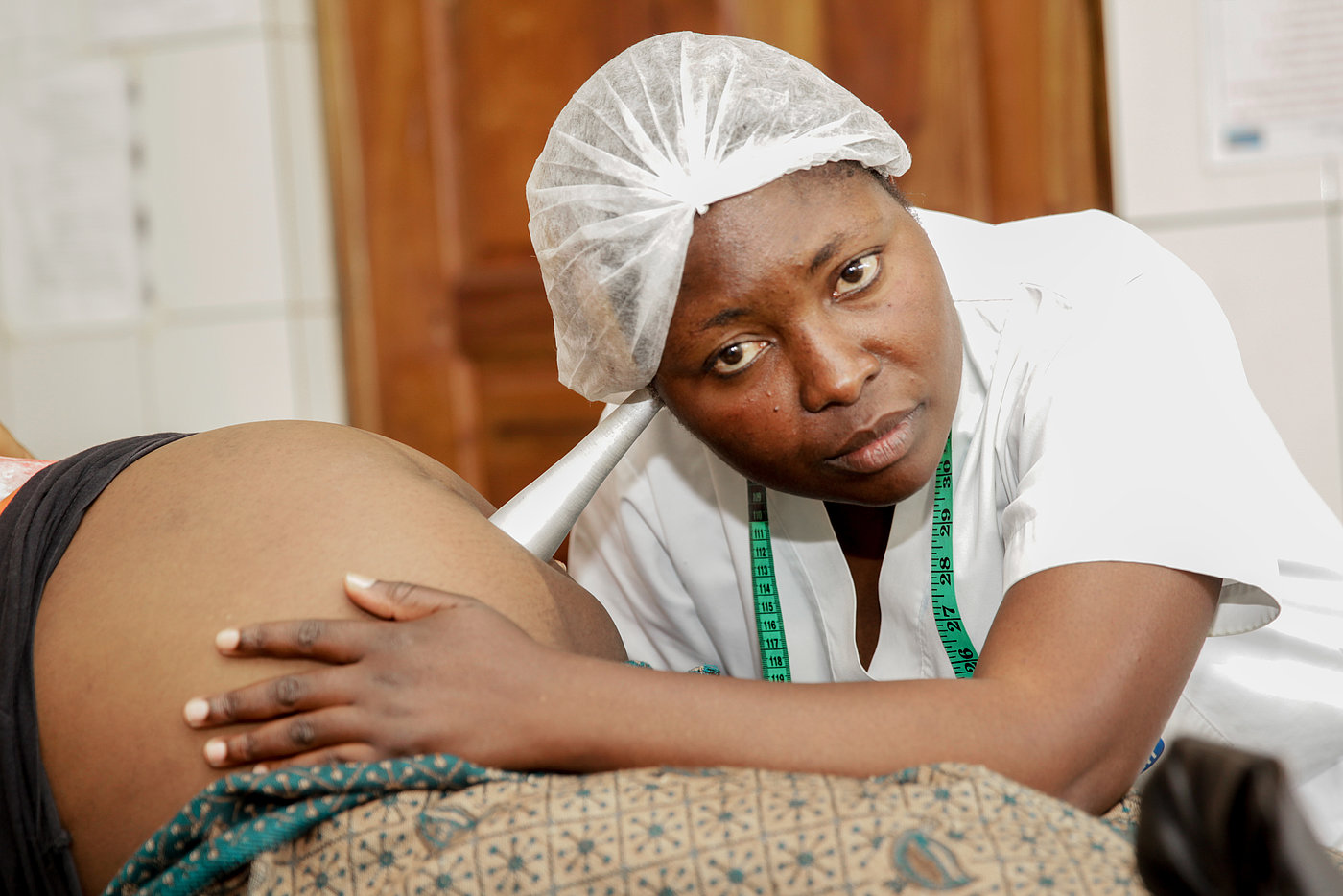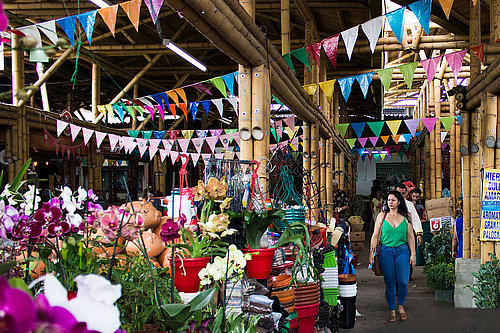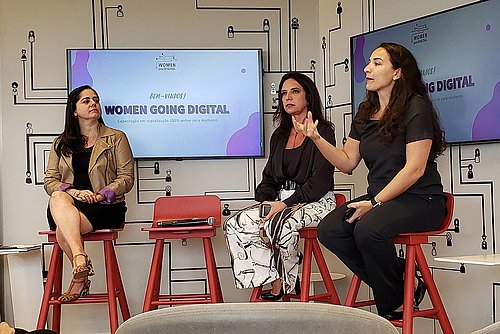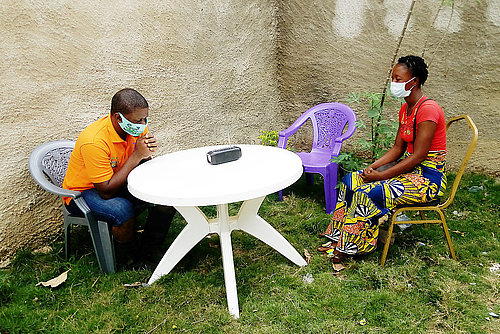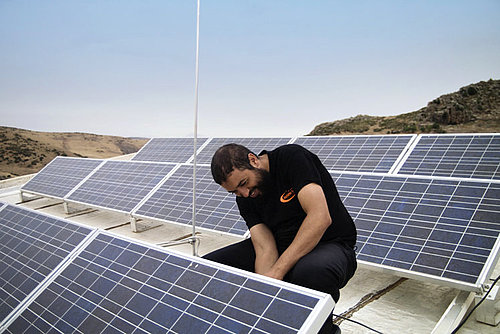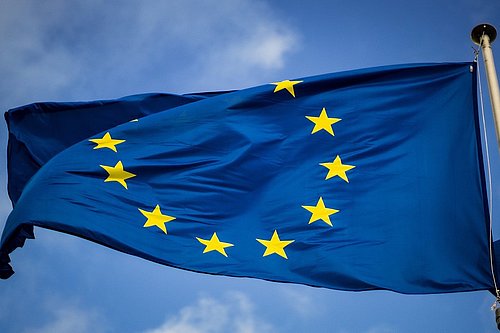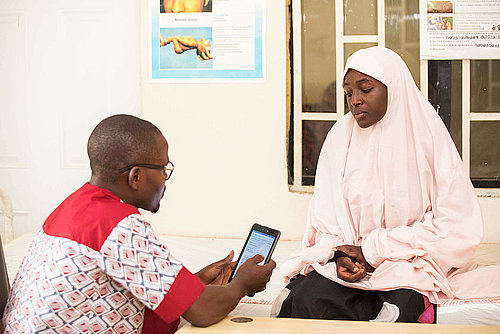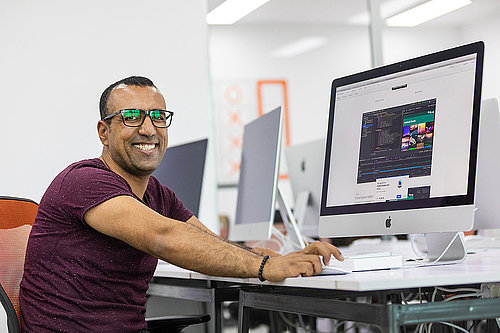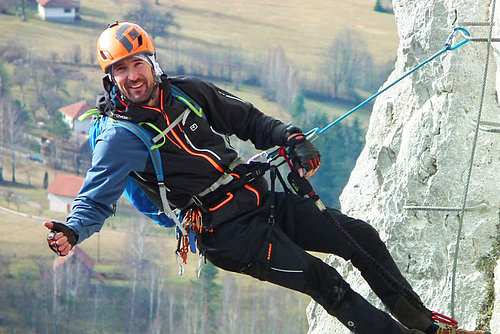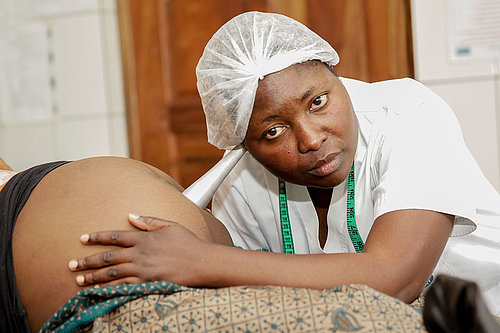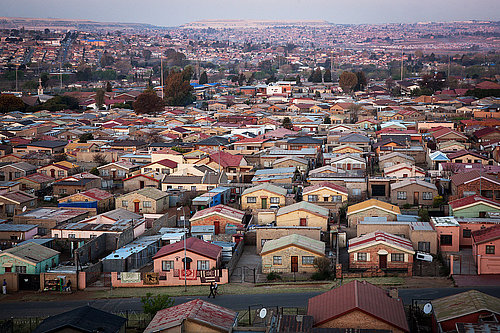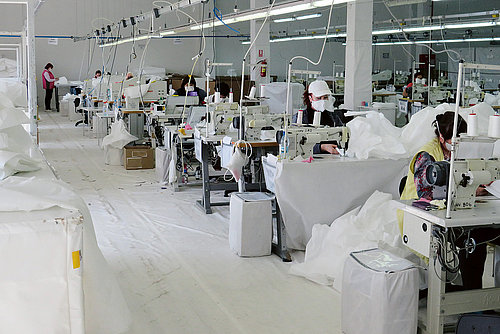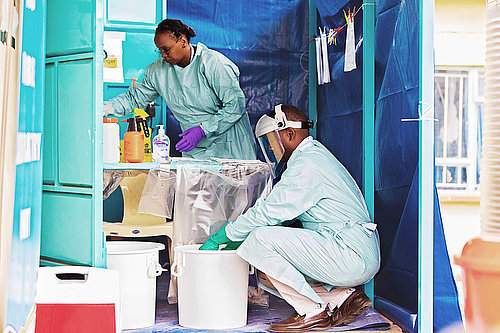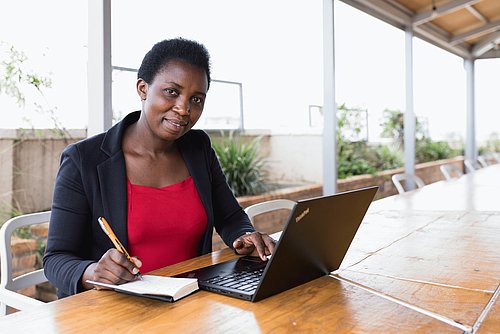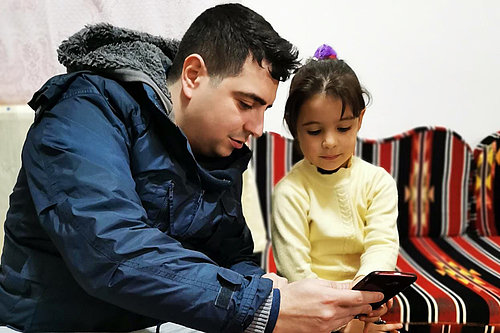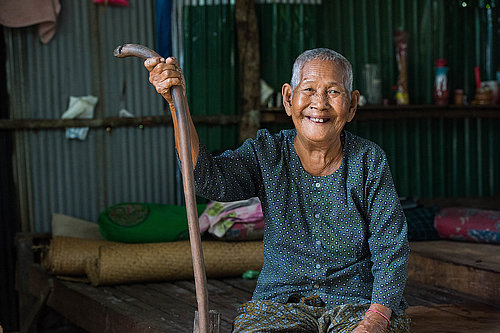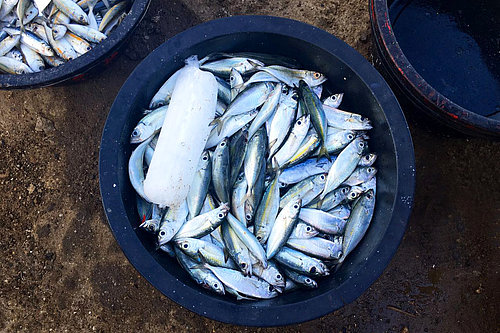The midwife carefully places the wooden stethoscope on the belly of her heavily pregnant Congolese patient. She uses the traditional Pinard stethoscope to listen to the baby’s heartbeat. The midwife is happy to draw on tried-and-tested methods where appropriate, but she also welcomes innovations in the health service in her home province, South Kivu, in the east of the Democratic Republic of the Congo.
To ensure that people in this province, which is home to a good eight million people, receive better medical care, GIZ International Services is supporting the health system on behalf of the Swiss Agency for Development and Cooperation (SDC). The Support to the Health System in South Kivu Province (PASS) programme cooperates closely with the ministry responsible in South Kivu and with a large number of regional and local organisations. More than 10 health centres and hospitals have been built, fitted out or renovated. The aim is to give 1.5 million people easier access to health services.
Focus on mothers and newborn infants
One example is the hospital in Nyangezi, a city in the east of the Democratic Republic of the Congo. The hospital now has a solar power plant, making it independent of the national power grid. Under the PASS programme, it has also been fitted out with mobile ultrasound units and other medical equipment. Mothers and newborn infants are a particular focus of care in South Kivu because maternal and neonatal mortality rates are still far too high.
But gradual changes can be seen in the region. Between 2017 and 2020, maternal mortality dropped. Today the number of maternal deaths per 100,000 live births is 590, down from 730. In Germany, the maternal mortality rate stands at seven deaths per 100,000 live births. The Democratic Republic of the Congo is one of the poorest countries in the world. It comes close to the bottom of the United Nations Human Development Index, where it ranks 175 out of 189. And even within this central African state, South Kivu is one of the most fragile provinces, shaken by conflicts.
Coronavirus hotline provides information
In the past, health experts in South Kivu had to cope primarily with outbreaks of malaria, acute respiratory infections, malnutrition and parasitic diseases, as well as cholera, measles and Ebola epidemics. But just like everywhere else, 2020 was dominated by the coronavirus pandemic. With the help of BMZ’s Emergency COVID-19 Support Programme, the existing network of health centres were fitted out to treat COVID-19, and outbreaks of disease were monitored. Staff, patients and travellers were tested for the virus. And a coronavirus hotline was set up to provide advice via mobile phones. In this way, structural improvements were effectively dovetailed with active emergency assistance, helping achieve better health care in the region.
Since 2015, we have been working closely with the PASS team to strengthen the health system. This meant that we already had a sound foundation in place which allowed us to respond rapidly to the COVID-19 pandemic. We drew up a pandemic plan for the province, and implemented it.

Democratic Republic of the Congo
(© Zozo Musafiri Musa)
Our projects in the 2020 Integrated Company Report
Do you want an overview of all the projects in the 2020 Integrated Company Report? Select a project below:
- Bosnia and Herzegovina: a magnet for adventurous tourists
- Brazil and Mozambique: going digital
- Democratic Republic of the Congo: a prescription for better health
- Global: a new digital era
- Global: artificial intelligence for all
- Global: centres for digital transformation
- Indonesia: ice from solar energy
- Cambodia: no one is overlooked
- Latin America: naturally cool
- Lebanon: educational opportunities for all
- Morocco: on track towards the technology of the future
- Moldova: new patterns, new opportunities
- East Africa: fighting infections
- Sierra Leone: radio programme provides support in the crisis
- South Africa: green investing
- West Africa: disease control made in Nigeria
Do you want to learn more about GIZ’s work? You’ll find information about around 1,600 ongoing projects here.

